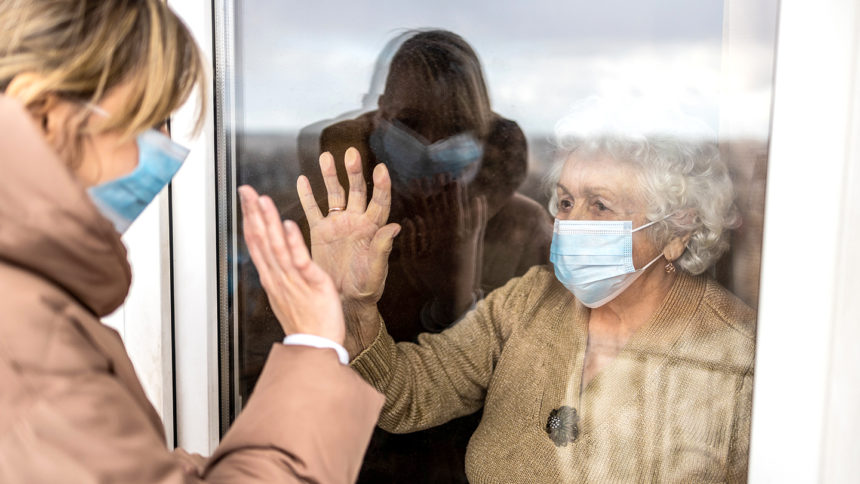Nursing home residents suffered such extreme social isolation, cognitive decline and mental health issues from facility lockdowns during the COVID-19 pandemic, long-term care leaders must develop new strategies to address the emotional and mental well-being of residents in the event of any future pandemics or similar health emergencies, new research has found.
A team of Spanish investigators came to their conclusions after a literature review of 17 previously published research studies that examined the impact of COVID-19 lockdowns on the functional, cognitive and psycho-emotional health of older adults in nursing homes.
Their study, which was published Friday in the BMC Geriatrics journal, found that during COVID lockdowns at nursing homes, older adults exhibited decreased functional ability to perform activities of daily living, lower cognitive scores during the pandemic’s first waves, the worsening of neuropsychiatric symptoms such as depression and loneliness, and feelings of loss, lack of purpose and social isolation among residents.
The findings support other research that revealed the negative impact of COVID-19 lockdowns on the mental health and well-being of nursing home residents and their family members.
The researchers concluded there is “urgency for developing new and more effective strategies.” They added that older adults need the “therapeutic instrument” that is represented by social support from family, roommates, and staff. Researchers also highlighted the need for recreation, promotion of positive attitudes, autonomy, and the protective role of religious beliefs in coping with isolation.
“If it becomes necessary to apply lockdown and isolation measures in nursing homes in the future, it is essential to translate the evidence analyzed in this review into clinical practice, so that strategies are implemented to promote the functional, cognitive, and emotional well-being of residents, mitigating the negative impact that these preventive measures have been shown to have,” the authors concluded.





